
Of course, when mentioning the book, the authors are most often praised. And there is something for that 🙂 But what about getting to know the profession of an editor better? In this interview, we will talk to experienced editor Julia Belous about editing, freelance and job search for students who are interested in working with the word in the future.
- Please tell us a little about your experience in publishing. (Where did you start working, for how long? Did you start when you were still a student?)
I started working with publishing houses while still studying for a master’s degree. Since the schedule was a bit unloaded, unlike the bachelor’s degree, I had time to start looking for a job. In fact, I understood that they just didn’t become editors, and now we need at least to find volunteering to gain experience. She wrote to the editor-in-chief of Komubook, which had its own website, where he published translations of various articles by the authors he published, and invited him to volunteer and edit these articles for free. He agreed. So we worked for several months. Eventually, my first book (also from Komubook) came to me for editing. Paul (director of the publishing house) believed in me and decided to give the first official editorial work, where my name was. I was very proud of this book later. It was difficult to edit, but, surprisingly, I managed and since then started working with ‘Komubook.’ After graduation she went to work in the publishing house ‘Smoloskyp’ as a graduation editor. The work was in fact managerial; I had little of such purely editorial work, but I continued to take some freelancers, worked for my first publishing house and for ‘Komora,’ ‘Yakaboo Publishing.’ In ‘Torch,’ if I had time, I also took some projects as an editor. And after “Torch” I worked in public relations (communications department of the publishing house ‘Knigolav’) and it was already a completely different field of responsibility. Usually I did not stay in publishing houses for more than a year. In ‘Torch’ I worked a little more, and in ‘Bookhead’ on average it was a period of 8 months. But every time it’s not because I wanted to change jobs, because it’s hard, but because I wanted to develop in different directions. I still work with some publishers on a freelance basis, and now I’m happy with it.
- What are you doing now? (where do you work, what duties do you perform?)
I actually told a little in the first question. Now, in particular, I edit and proofread for the publishing house ‘KOMUBUK,’ but from time to time I lead as a project manager of “Torch” projects, because some books need a freelance editor, and so I now have two jobs, but my main job is work at MEGOGO, I am a producer of MEGOGAudio and I deal with narrative podcasts that have not yet appeared, but everything is ahead. I will continue to work with creative products related to the voice.
- Name three reasons to edit and three reasons why you should not do it.
Three reasons to edit… First: the desire to make the world a little better because you work with books. In my opinion, the love for books extends to any of your activities, because they can be personal and professional help, pleasure, and therapy. If this drives you, and you know how to use the language and know how to make other people’s texts better, then why not. The second reason: if you are a philologist, it can be called a mission, because you have to master the language so perfectly that you are proud of yourself.
In fact, editing is an opportunity; here you can meet interesting enough people to immerse yourself in the circle of writers. In addition, you can always show off your ability to work perfectly with syntax. Why not)
Third: this is one of the steps in the publishing business. I am a fan of the fact that you can try everything. If you go through the full cycle of the entire production (Except for printing. No one can become a small printing company) – then consider that you can even open your own publishing house. I will not say that I do not have such a dream. And understanding all the processes, you can, in principle, more effectively manage the team in senior positions, understand the intricacies and not set unrealistic goals.
Three reasons not to do this…First: you are very exhausted from texts, and sometimes it comes to the point that when you have constant texts at work, you cant enjoy reading like a regular reader. The book for you turns into a working canvas, not a canvas that will bring peace and joy. The second reason is the low financial rewards you can get for your work. You can't do without just one project and you have to look for something else. Accordingly, your time is completely occupied with various books. This actually affects the quality of work and here you need to come to some agreements with your conscience, because some projects are delayed, some are made worse than you expected. But I believe that there are people who can combine everything and find balance. I can't, for me it's a race every time, after which I have to recover for a very long time. Third, it's all bad for your health. Tension for the eyes, for the brain. In my opinion, there are just people who are created, literally, to work with a lot of texts. Even editing can "eat" you in the sense that you can get used to your cozy swamp and not want to move on. For myself, I have not found development in editing, and it seems to me that it is very natural to look for other areas of activity. Everyone wants to jump higher and do better.
<ol start="4">
<li><em> When working at ‘Torch’ there were cases when the whole team did not notice any mistake in the publication, which has already gone to print? How did you get out of the situation?</em></li>
</ol>
Oh, there were actually a lot of different interesting f**kups in the Torch, but no one ever tore their hair, hit their foreheads against the wall, or shouted that everything was gone. If we found any mistake in the publication - it did not become a tragedy. We understand that we are all human beings, and a book is first and foremost a product created by our eyes, hands and brain. You can't predict that anyone on the team will work one hundred percent, and even if they do, that 100 percent won't have gaps in the work that the person has done. We had both prints and footer errors. One day I forgot to indicate the designer on the technical pages of the book and it turned out that the cover did not belong to anyone. One of the books was published without a barcode at all, which is very important for the Western market and, thank God, not so important for ours. But all this was corrected either in subsequent editions or manually. Once in the book "Many Children" portraits of women writers were confused, so I had to order stickers and glue one page in the entire edition.
<ol start="5">
<li><em> Why did you choose freelance? what advantages and disadvantages can you single out?</em></li>
</ol>
In fact, freelancing is a terrible choice for me. This requires strict self-discipline. In fact, for me, freelancing is a challenge: can I plan my time effectively. Office work, moreover, is now irrelevant during the pandemic, all now consider sitting on a freelance basis. But in my case, the main advantage of freelance is the combination with the main job. I have a main job in which I invest the most time, but because I have requests that cant cover the profits from the main work, I take on additional projects. In this way, you can, by the way, get rid of projects that are tedious to perform, because in fact you choose what to work with.
- Isn’t it difficult to work in two publishing houses at the same time? Were there any problems because of this?
There have never been any problems with different publishers, because everyone understands how the market of editors / proofreaders works. These are all people who can do their job anywhere, anytime and for anyone. And the only thing that matters here is the quality of work and time for this work. That is, managers are fully aware that, for example, freelancers do not belong to them entirely. They have the right to work with whomever they want. The only thing that can be said is the non-disclosure of confidential information such as salary; these items are often spelled out in the contract.
- Were there any noticeable changes in the work during the pandemic. Did it affect the volume?
In principle, the publishing houses I work with have not been severely quarantined. There were a few pauses, but short ones. Work on the books was still moving. The only thing is that some works were not published for some time, but later the production of circulation was still started.
- In your opinion, is it better for a student without experience to start with a freelancer or with a job in the publishing house?
From my experience I will say that it is better for a student to first knock on internships, internships, and offer their services for free. It makes sense to try your hand at proofreading, and then move on to more serious work such as editing. It’s just that if we talk about editing and proofreading, the latter is more of a technical look at the text, where you can get your hands on how to properly evaluate the syntax from a proofreading point of view, learn all the marks and how to proofread the text in general. . In general, it is better to ask for small works, because the novel can really not cope. That is why it is better to offer your help on a volunteer basis to fill your hand. Of course, I understand that money is important, especially for a student. So do not be shy, ask about the monetary reward: no, no. Then agree to volunteer. It would also be a good idea to have a supervisor in the publishing house that would supervise you and give advice on what you do.
- Where would you advise students to gain experience? Where to start?
It is important for students to practice. Theory is certainly useful (you need to know spelling, for example), but without practical skills nowhere. It all comes with experience. I was also very scared in the beginning, insecure about myself, my edits. Of course, I noticed some inconsistencies in the ready-made books after the release, but after these comments and analyses, I realized what to pay more attention to, and what you can`t touch at all. And this is normal. With each new book you will grow. Perhaps, by the way, it makes sense to first go to the media, edit the news feed, write them, be a proofreader on the site, read articles in periodicals. These are all ways to understand the profession and understand whether you like it at all.















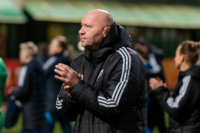







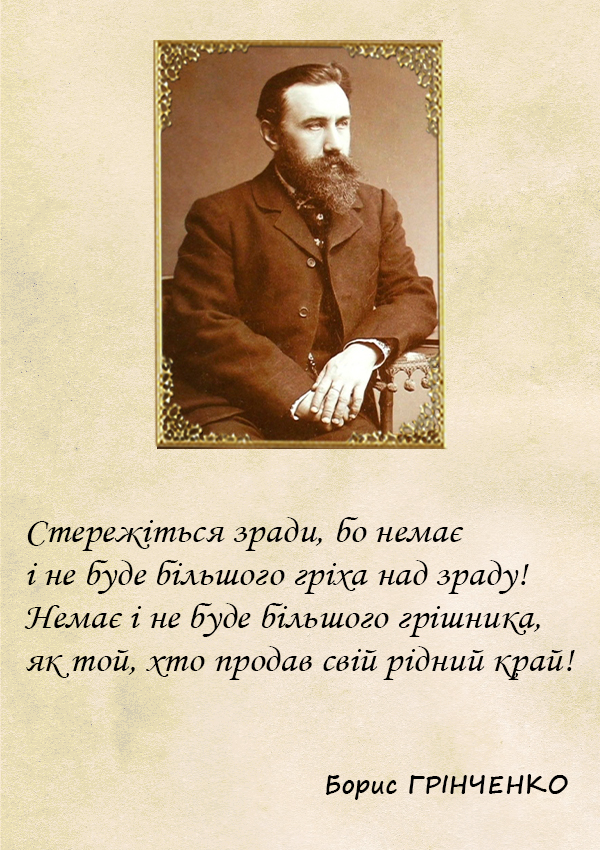



















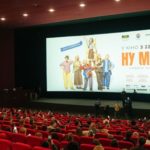

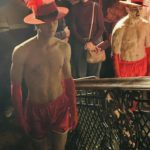


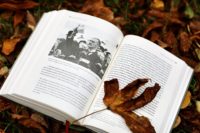









Залишити відповідь